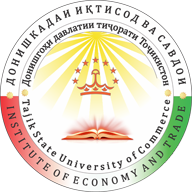Erasmus exchange student at Tashkent University of Information Technologies
Boynazarov Jahongir – student of the 2nd year at IETTSUC, his major “World economy”, Erasmus exchange student at Tashkent University of Information Technologies named after Muhammad al-Khwarizmi. Learning is a very interesting process that takes up most of your time …









